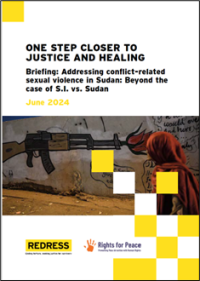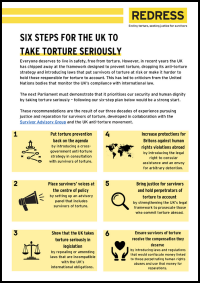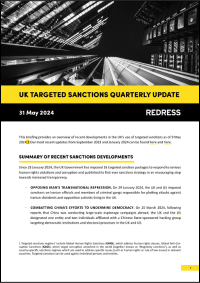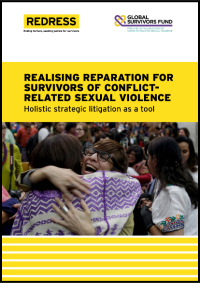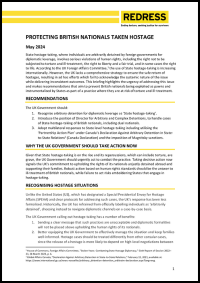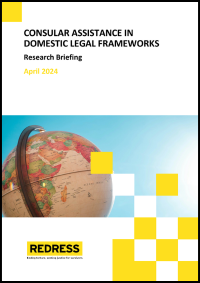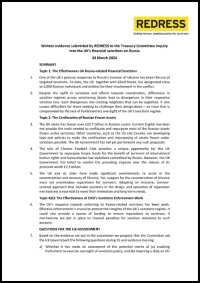Publications
REDRESS’ publications are also available in hard copy format. Please contact us for further information on [email protected].
This report was submitted to the Independent International Fact-Finding Mission for Sudan on 3 July 2024. It was prepared by the SOAS Centre for Human Rights Law, ACCESS, and REDRESS. The submission builds on over two decades of engagement, including law reform advocacy and litigation, particularly in cases of torture before the African Commission on Human and Peoples’ Rights, as well as research on justice for serious human rights violations in Sudan. It identifies the root causes of human rights violations and impunity in Sudan, which encompass political, legal, social, economic, and cultural factors that have engendered violence and a lack of accountability.
Survivors of CRSV in Sudan struggle to access justice and obtain reparation. Perpetrators are rarely held accountable due to near total impunity of State-sanctioned violence embedded in Sudan’s power structures and legal framework. This briefing, written in partnership with Rights for Peace, provides an overview and recommendation on addressing CRSV in Sudan beyond the case of S.I., a student involved in pro-democracy rallies in Khartoum in 2011.
Ahead of the UK general election on July 4th 2024, REDRESS presents a set of six recommendations to ensure that the next government protects our security and human dignity by taking torture seriously, developed in partnership with survivors of torture and the UK anti-torture movement.
This briefing provides an overview of recent developments in the UK’s use of targeted sanctions as of 23 January 2024.
Conflict-related sexual violence (CRSV) is pervasive in all armed conflicts, regardless of their location or nature. This report describes the main challenges that survivors and practitioners face to realising the implementation of reparation, and identifies and shares good practice with practitioners in the field to address those challenges, with the ultimate goal of facilitating the delivery of reparation to survivors. This report is part of a REDRESS project that explores holistic strategic litigation as a tool to overcome the obstacles for the implementation of decisions awarding reparation for CRSV survivors.
State hostage-taking, where individuals are arbitrarily detained by foreign governments for diplomatic leverage, involves serious violations of human rights, including the right not to be subjected to torture and ill-treatment, the right to liberty and a fair trial, and in some cases the right to life. According to the UK Foreign Affairs Committee, the use of State hostage-taking is increasing internationally. However, the UK lacks a comprehensive strategy to ensure the safe return of hostages, resulting in ad hoc efforts which fail to acknowledge the systemic nature of the issue while delivering inconsistent outcomes. This briefing highlights the urgency of addressing this issue and makes recommendations that aim to prevent British nationals being exploited as pawns and instrumentalised by States as part of a practice where they are at risk of torture and ill-treatment.
This briefing identifies different approaches towards the provision of consular assistance to a State’s nationals in domestic legal frameworks, addressing the responsibilities a State owes towards its nationals when they are located outside its territorial borders. It offers an overview to policy-makers of four different models for the provision of consular assistance at a domestic level which already exist in a range of different States.
Written evidence submitted by REDRESS to the Treasury Committee's inquiry into the effectiveness of the UK's financial sanctions on Russia.

